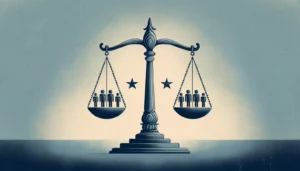Initial Steps after a Car Accident
Taking prompt action after a car accident is crucial. The first moments set the foundation for any legal claim by ensuring key details are preserved and documented properly.
Proper handling of evidence and medical care immediately after the incident can significantly impact the success of a lawsuit related to the accident.
Understanding these initial steps helps victims protect their rights and prepare for potential legal proceedings.
Evidence Collection and Documentation
Collecting evidence right after the accident is vital. This includes photographing the scene, damage to vehicles, and visible injuries to support your case.
Gathering contact information from witnesses and involved parties also strengthens your documentation and provides credible testimony if needed.
Maintaining organized records of all collected evidence ensures nothing critical is overlooked when filing a claim or lawsuit.
Seeking Medical Attention and Police Reports
Even if injuries seem minor, obtaining medical evaluation is essential. This helps document injuries that may not be immediately apparent but are relevant legally.
Filing a police report or obtaining one from attending officers validates the accident details and is often required for insurance and legal processes.
Medical and police reports serve as official records that support claims of injury and establish fault during the legal proceedings.
Legal Representation and Filing the Lawsuit
After a car accident, securing legal representation is essential to navigate the complex lawsuit process and protect your rights effectively.
Filing the lawsuit involves careful preparation of legal documents and ensuring notifications comply with jurisdictional rules for a valid claim.
Understanding the proper court and jurisdiction is key to initiating the legal procedure correctly and avoiding delays in your case.
Consulting and Hiring a Specialized Attorney
Consult an attorney specializing in car accident cases early to review your situation and advise on the best legal strategy tailored to your needs.
A specialized lawyer will examine evidence, assess liability, and guide you through compensation or defense options, enhancing your case’s chances.
Hiring a skilled attorney ensures professional handling of claims, negotiations, and litigation, reducing your stress during the complex process.
Filing the Complaint and Notification Process
When settlements fail, formally filing a complaint initiates the lawsuit, detailing facts, defendant’s liability, and claimed damages in the proper court.
Once filed, the complaint must be officially served to the defendant, who then has a legal timeframe to respond, protecting procedural fairness.
Following proper notification procedures is crucial to uphold your case’s validity and comply with statutory deadlines in your jurisdiction.
Jurisdiction and Court Requirements
The lawsuit is generally filed in the jurisdiction where the accident occurred, aligning with local court requirements and venue rules for filing.
Different courts may have specific procedural rules, deadlines, and documentation standards that influence how your case advances.
Understanding jurisdictional nuances, like state-specific laws or comparative negligence rules, helps tailor your approach for the best outcome.
Discovery and Negotiation Phase
The discovery phase is a critical part of car accident lawsuits, where both parties exchange information relevant to the case. This process allows each side to assess the strength of their claims and defenses.
Effective discovery helps uncover facts, identify evidence, and clarify the specifics of liability and damages. It lays the groundwork for possible settlements or trial preparation.
During this phase, parties also explore negotiation opportunities, aiming to resolve the dispute without proceeding to trial, saving time and costs.
Information Exchange and Depositions
Information exchange involves sharing documents such as medical records, police reports, and repair estimates to support each party’s position in the lawsuit.
Depositions allow attorneys to question witnesses and involved parties under oath. This process helps clarify testimony and gather useful admissions for the case.
Careful preparation for depositions is essential to avoid surprises and strengthen your legal stance when facing the opposition’s questioning.
The thoroughness of discovery can have a significant impact on the lawsuit’s outcome, highlighting the importance of professional legal guidance.
Mediation and Settlement Attempts
Mediation is a common step during the negotiation phase, where an impartial mediator helps both sides reach a mutually acceptable settlement.
Settling a case through mediation or negotiations often benefits both parties by reducing legal fees and providing faster resolution than a trial.
If mediation fails to produce an agreement, the lawsuit typically proceeds to trial, where a judge or jury will decide the outcome based on presented evidence.
Trial and Key Considerations
The trial phase is where both sides present their arguments, evidence, and witness testimonies before a judge or jury for final evaluation.
This critical stage determines the outcome of the lawsuit, including any compensation awarded or dismissal of claims based on presented facts.
Understanding the trial process and key legal considerations is essential to prepare effectively and protect your rights in court.
Presenting Arguments and Court Decision
During the trial, each party presents their case through evidence and testimonies, supporting their claims or defenses clearly and persuasively.
The judge or jury evaluates responsibility, damages, and credibility of all information before delivering a legally binding decision or verdict.
Effective presentation, including clear communication and organized evidence, significantly influences the court’s ruling in car accident lawsuits.
Legal Deadlines and Jurisdictional Variations
Strict legal deadlines, like statutes of limitations, require timely filing and responses to maintain your lawsuit’s validity and avoid dismissal.
Jurisdictional differences impact procedural rules, required documents, and even fault determinations, which vary by state or country.
Awareness of specific deadlines and local legal nuances is crucial for compliance and adapting your legal strategy to the governing jurisdiction.







